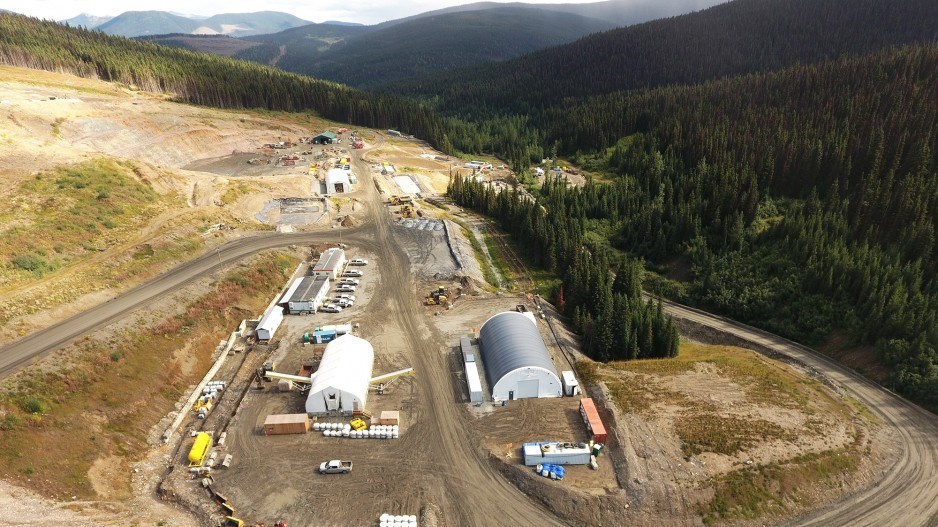The tiny, artsy town of Wells, sa国际传媒 is about to experience an economic transfusion, whether it likes it or not, in the form of a gold mining renaissance.
Earlier this week, the BC Environmental Assessment Office completed its assessment of the Cariboo Gold underground mine, which was originally part of the Barkerville Gold district.
The ministers of Environment and Energy, Mines and Low Carbon Innovation now have 30 days to render a decision on the project.
Although the estimates have varied, the Mining Association of BC (MABC) said in a submission to the EAO that the project could result in capital expenditures of $800 million, and 600 jobs created during construction.
The mine's proponent, Osisko Development, says the initial capital cost for phase 1 of the project is just $137 million, but estimates a total capital spend of $1 billion for the life of the mine.
Once the mine is in operation, the mine is expected to sustain 500 permanent jobs, which is about twice the current population of Wells, where the mine is being built. The MABC estimates the annual payroll from the mine will be $53 million, with an expected mine life of 16 years.
The Cariboo Gold project grew out of Barkerville Gold – a promising gold mine district that was bungled when Barkerville Gold founder Frank Callaghan was found by the BC Securities Commission to have exaggerated resource estimates for Barkerville’s Cow Mountain property.
Callaghan was fined $30,000, eventually resigned as CEO and director, and Barkerville eventually changed hands, with Osisko Mining Inc. (TSX:OSK) taking a majority stake, changing the name of the gold mining project to Cariboo Gold and placing the the mine in the hands of Osisko Development.
Like the nearby living museum of Barkerville, the town of Wells, where Osisko Development plans to develop a new underground mine, was originally a gold mining company town.
But there’s been no real active mining in Wells since 1967, when the Cariboo Gold Quartz mine shut down. It is now just a quiet, little town filled with artists and which benefits from a spillover of tourists on their way to nearby tourist attractions – Barkerville and Bowron Lakes provincial park.
The town’s population – once 4,500 – is now just 218, and judging by the input of residents during open comment period, many would like to keep it that way.
The BC EAO received more than 200 submissions during a public comment period. Many Wells residents who made submissions fear the industrialization of what has become a quiet tourist town.
One of the biggest concerns appears to be an “enormous eyesore” in the form of a concentrator mill that would be built on the edge of town.
Even those who generally support the project expressed concerns about a large concentrator mill being located at the entrance to the town.
“As a resident of Wells, albeit not a long-lived one, I have some serious reservations about this plan, as it stands, to build a 16-hectare ore-processing concentrator complex — with a 12-storey waste rock treatment tower — right at the entrance to town,” writes Joshua Stefan.
“I am not a fan of NIMBYism, and I do believe the proposed re-opening of the mine will bring economic opportunity to this town that it would be foolish to reject off-hand. However, situating it right smack dab in the center of people's lives/neighbourhood will have huge knock-off effects that will be severely detrimental to many aspects of our lives.”
There appears to be fairly strong support for the mine outside of Wells in nearby towns like Quesnel, which is 80 kilometres away and will likely benefit from the new jobs and business the mine will bring.
"I believe as the CEO of AUL Industrial Repairs that this project will benefit Quesnel and surrounding area in a very positive economic way," writes Harpal Aulakh. "It will provide many jobs during construction and as well as after construction for many skilled trades as well as operators, and labourers."
Osisko Development is aiming to pour first gold at the mine in 2024.


